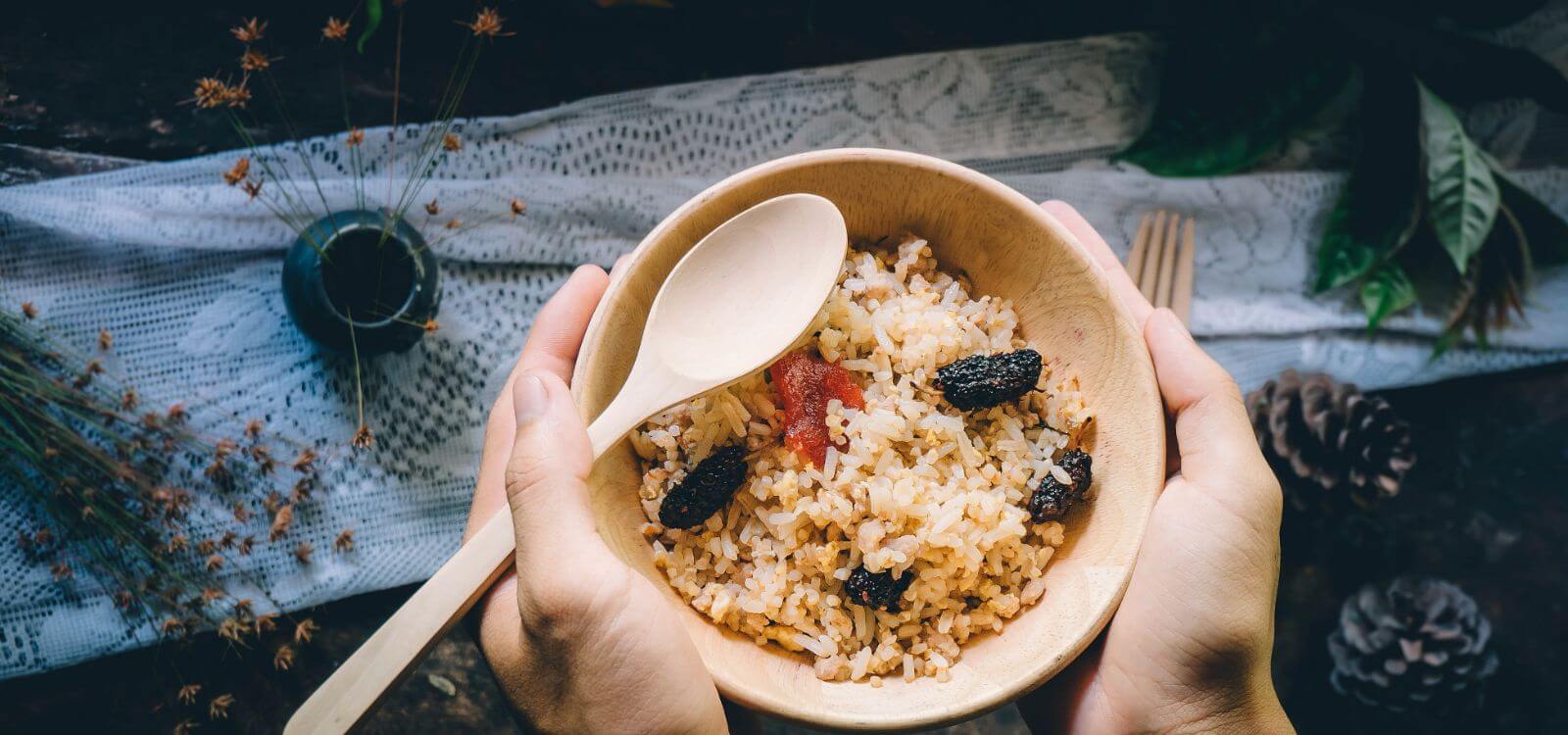Are you a Kapha dosha type? If yes, it's important that you keep the Kapha dosha balanced by eating the right foods. A Kapha diet can help you feel your best while preventing a Kapha imbalance, which can manifest as weight gain, fatigue, refusal to change, and other potential consequences. Eating the right Kapha dosha foods is key to avoiding these issues. If you are a Kapha type, make sure your diet is aligned with your energies by keeping the following essential tips in mind.
Kapha Diet Qualities to Favor
Ayurveda recommends that Kapha types or people who are likely to experience a Kapha imbalance (especially during Kapha season) favor warm, light, dry and rough foods.
Warm over Cool
Since Kapha types are naturally cool, it’s best that they emphasize warmth in their meals. This means Kapha types should serve meals warm and try to incorporate spices that bring additional heat.
Light over Heavy
Because the Kapha dosha is characterized as heavy, Kapha types should incorporate lighter and airier foods. Fruits and vegetables are typically light in nature and offer balancing qualities for Kaphas.
Dry over Moist & Oily
Kapha types are encouraged to choose dry foods over moist and oily ones. An easy way to favor these qualities is to steam your vegetables instead of sauteeing them and incorporate dry and astringent ingredients, like legumes, white potatoes, and dried fruit.
Rough over Smooth
In general, Kapha types should strive to counterbalance their smooth nature with rough foods. Rough foods are typically high in fiber, like broccoli, cabbage, dark leafy greens, and beans. On the other hand, smoother foods, like bananas, pudding, and milk should be minimized.
Kapha Diet Tastes to Favor
Ayurveda recommends that Kapha types emphasize pungent, bitter and astringent tastes while minimizing sweet, sour and salty flavors.
Astringent
The astringent taste is satisfied with most legumes, white potatoes, and some fruits and vegetables, like cranberries and broccoli.
Pungent
Pungent, hot foods have the necessary intensity to keep Kapha energy in balance. Options to consider include raw onions, chilies, and most spices.
Bitter
As a Kapha type, try to favor bitter foods, like bitter leafy greens. Other bitter foods that help manage Kapha energy levels include mushrooms, brussels sprouts, and dark chocolate.
What Kapha Types Should Avoid
Although it's clear there are many delicious foods that serve to balance Kapha energy, there are also some foods that should be avoided. In particular, foods that are cool, heavy, and moist will generally increase Kapha dosha. Examples of cool, heavy, moist foods are ice cream, buttered wheat bread, oatmeal, root veggies, milk, and sweets. In addition, Kaphas should minimize, sweet, sour and salty tastes. For instance, sweets and baked goods are not ideal for the Kapha dosha. Instead, Kaphas should stick to sweets in moderation and choose Kapha-friendly fruits, like apples, berries, and pears, and honey. Sour foods, including vinegar, sour cream and sour fruits, should also be avoided. Lastly, Kapha types should avoid excess salt. Too much salt can exacerbate the physical symptoms associated with excessive Kapha.
Kapha Teas and Drinks
The guidelines for a Kapha diet also extend to beverages. Kapha types should limit cold beverages and opt for a spicy Kapha tea. You may also want to melt Chyawanprash in warm water for an energizing boost. Chyawanprash is beneficial for Kapha types as it contains herbs and spices that invigorate the body. It also protects the lungs, which can become aggravated with Kapha imbalance.
Kapha Diet Tips
Although eating the right Kapha dosha foods will help you maintain an energetic balance, it's also important to practice healthy eating habits. For Kapha types and Kapha imbalances consider the following tips:
Guard against emotional eating
Emotional eating is a common problem among Kapha types. If you find yourself reaching for more food than necessary, try to identify the root cause of your emotions and channel your energy into a healthier activity, like going for a walk or journaling.
Eat your biggest meal at lunch
For all dosha types, it's advised that we eat our biggest meal of the day at lunch when our digestive fires are naturally at their peak, rather than at breakfast or dinner.

